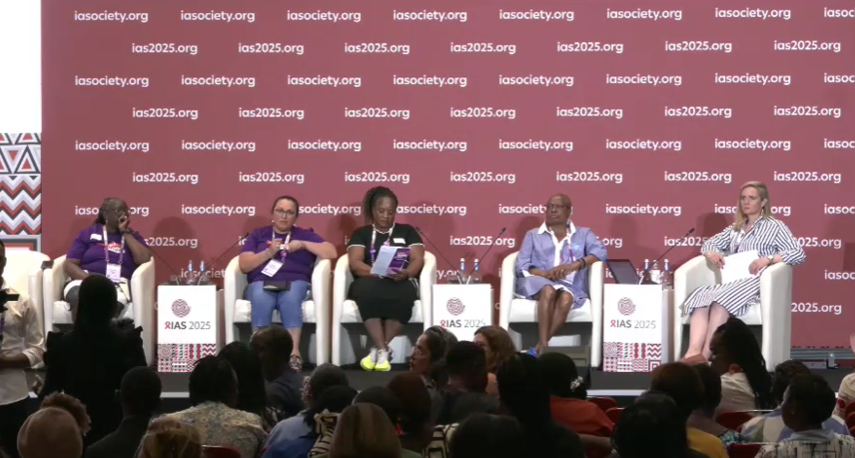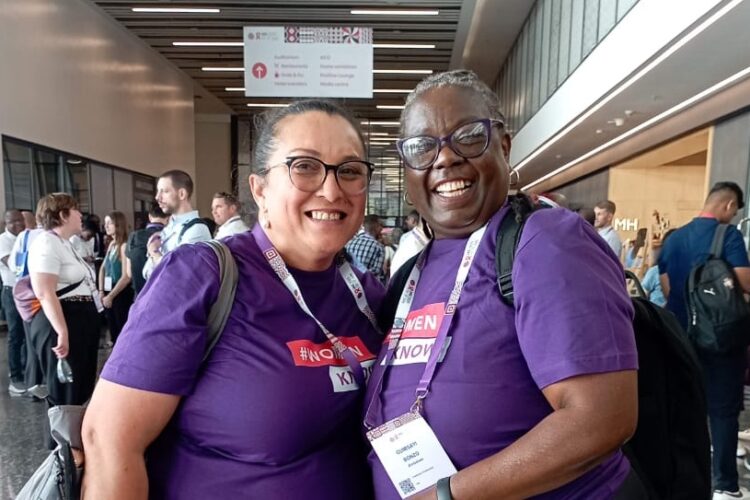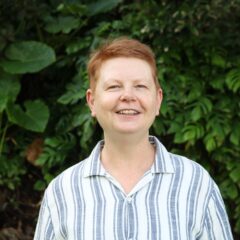The Women Know What Works pre-conference at IAS 2025 brought together a diversity of voices of women living with HIV from around the world as well as international experts to focus on achievements in HIV prevention, treatment and care for women living with HIV. Organized by Posithiva Gruppen, it was not just a call to action, but a reminder to the global community that women are at the centre of the global HIV and AIDS response.

This pre-conference brought together grassroots leaders and global advocates from across regions to celebrate decades of hard-won progress and to sound the alarm about the mounting threats of funding cuts and anti-gender backlash.
“We need more than resilience – we need respect”
Erika Castellanos, Executive Director of GATE and long-time trans and HIV activist, shared her personal reflection on what it means to lead while existing in a space of intersectional marginalization:
Despite barriers, trans women and women living with HIV across the globe are leading groundbreaking efforts to claim space, to claim rights, to claim dignity, and to be here in the HIV response. We have trans-led organisations and individual women and trans women who have constantly demonstrated exceptional resilience, but I am tired of being resilient! I need respect and I need equal opportunity!
Erika Castellanos
Erika, who is an Indigenous trans woman and has been living with HIV since 1995, called for urgent investment in the leadership of women, particularly trans womena and those from crimialized or marginalized communities. Drawing on her personal experience having been born in a country that criminalizes trans and gender diverse people, she shared that her HIV diagnosis changed her life for the better – teaching her how to live as a community, collectively giving and receiving help and support.
In a patriarchal system, all women are impacted. But the more marginalized you are, the heavier the burden. We cannot let anti-gender actors divide us. Our strength is in our solidarity.
Erika Castellanos
She called on funders to invest in the leadership of all women engaged at all levels of the HIV response.
Funding cuts are not gender neutral
This sentiment was echoed by Charity Mkona, Global Chair of the International Community of Women Living with HIV (ICW), who framed the current global funding crisis as both a threat and an opportunity.
Women in the HIV response know what works. We are building gender-transformative responses that go beyond token inclusion. But funding cuts are hitting us hardest — especially young women, sex workers, trans women, and women who use drugs.
Charity Mkona
Rather than trying to adapt to systems that exclude them, Charity urged the global HIV community to use this moment to shift power and dismantle the harmful norms that keep women at the margins.
She reframed the funding crisis as an opportunity to address the root causes of patriarchy and harmful social norms.
A call from Zimbabwe: fund community care
Gumisayi Bonzo, a sex worker and Executive Director of Trans Smart Zimbabwe, painted a stark picture of what happens when funding disappears.
We had clinics that welcomed sex workers, trans people, and people who use drugs. Those doors are now shut. Peer educators are unemployed, some are homeless. People are being turned away from care.
Gumisayi Bonzo
Describing the progress made in Zimbabwe’s HIV response prior to the funding cuts, she called for a renewed commitment to funding community-led health systems that don’t just provide services, but treat people with dignity.
In war-torn Ukraine, women keep the response alive
Valeriia Rachinska of 100% Life Ukraine brought a sobering reminder that the struggle for health equiuty doesn’t pause during conflict. Speaking about the threat to sexual and reproductive health rights in Ukraine, with hospitals destroyed and infrastructure crumbling, she shared how women living with HIV are on the frontlines. Ensuring the continuity of care under unimaginable conditions by organizing treatment access and supporting mothers, it is, as it always has been, the women who are bearing the burden of holding their communities together.
Women with HIV are sustaining life itself, ensuring the continuity of the HIV response. Now it’s time for the global HIV response to match our courage with real action.
Valeriia Rachinska
The path forward: invest in women, stand in solidarity
As the session came to a close, panelists were united in their message: women-led, community-rooted responses are more effective, more sustainable, and more humane in ensuring the inclusion of marginalized women.
The challenge now is not in knowing what works – it’s in making sure those efforts are funded, protected, and recognized.
In a world where backlash against gender justice is rising, the women at IAS 2025 sent a powerful reminder: we will not be divided. We will not be erased. And we are not done yet.
It is time for women to be heard, recognised and supported because women know what works.






